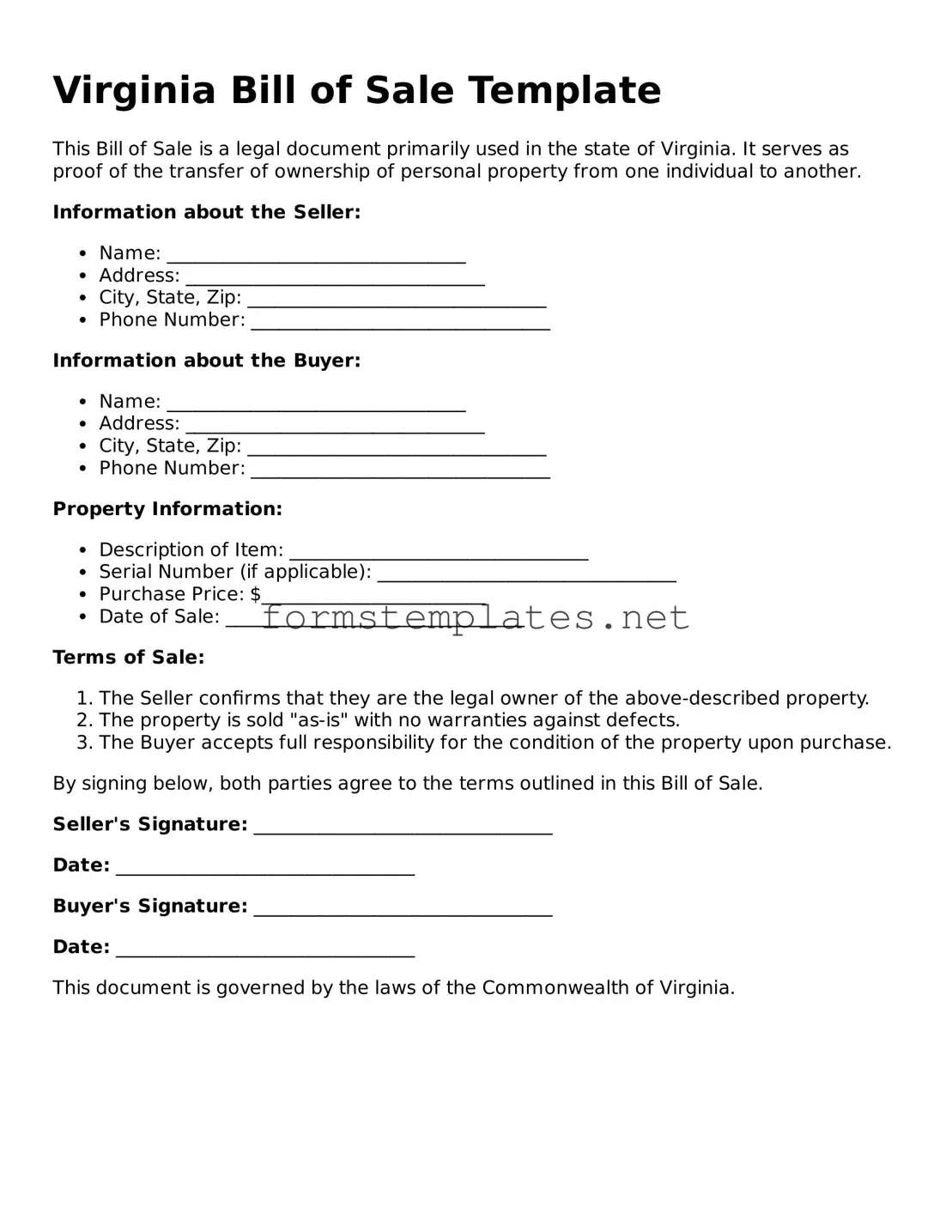What is a Virginia Bill of Sale?
A Virginia Bill of Sale is a legal document that serves as proof of the transfer of ownership of personal property from one party to another. It details the transaction, including the description of the item, the sale price, and the names of both the buyer and seller.
When do I need a Bill of Sale in Virginia?
You typically need a Bill of Sale when selling or buying personal property, such as vehicles, boats, or equipment. It is especially important for high-value items or when the buyer requires proof of ownership.
Is a Bill of Sale required by law in Virginia?
A Bill of Sale is not legally required for all transactions in Virginia. However, it is highly recommended for documenting the sale of personal property. For vehicles, the Virginia Department of Motor Vehicles (DMV) requires a Bill of Sale for registration purposes.
A comprehensive Bill of Sale should include the following information:
-
Names and addresses of the buyer and seller
-
Description of the item being sold
-
Sale price
-
Date of the transaction
-
Signatures of both parties
Can I create my own Bill of Sale?
Yes, you can create your own Bill of Sale. Ensure it includes all necessary information and is signed by both parties. Templates are also available online, which can simplify the process.
Do I need to notarize the Bill of Sale?
Notarization is not required for a Bill of Sale in Virginia. However, having the document notarized can add an extra layer of authenticity and may be beneficial in case of disputes.
How do I use a Bill of Sale for a vehicle?
When using a Bill of Sale for a vehicle, both the buyer and seller should complete the form with accurate information. The seller must provide the title, and the buyer should keep the Bill of Sale for registration at the DMV.
What if the item sold is damaged or not as described?
In such cases, the Bill of Sale can protect both parties. If the document includes a clause stating the item is sold "as-is," the seller is not liable for any defects after the sale. Buyers should inspect items carefully before finalizing the transaction.
You can obtain a Virginia Bill of Sale form from various sources, including:
-
Online legal document services
-
Local DMV offices
-
Office supply stores
Is there a fee for using a Bill of Sale in Virginia?
There is no fee specifically associated with creating or using a Bill of Sale in Virginia. However, there may be fees related to vehicle registration or other transactions that require the document.

